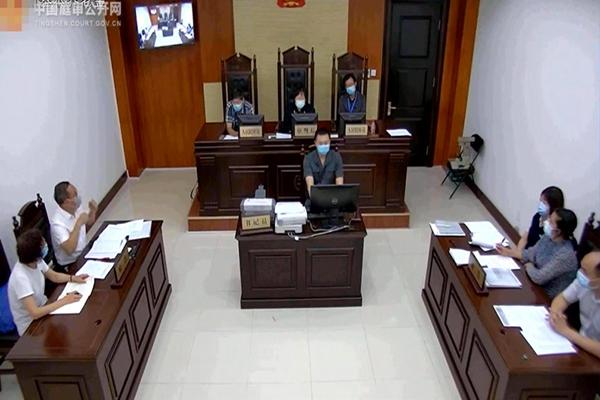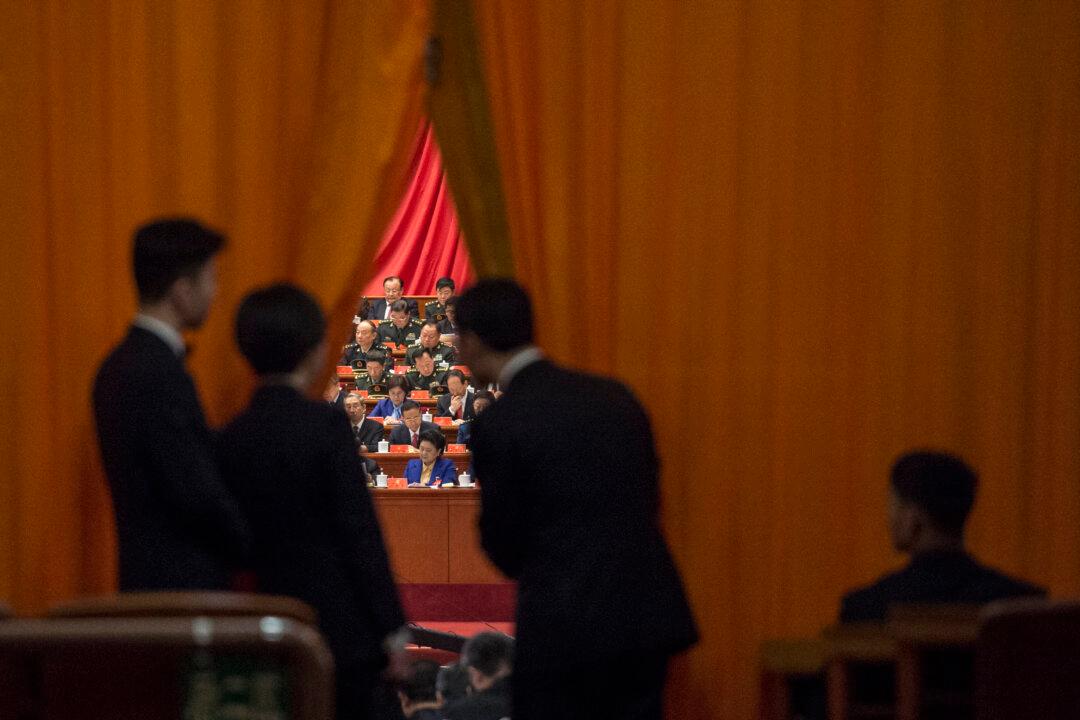On Aug. 26, a Chinese court live stream of a pension suspension case was abruptly cut off in the middle of the proceedings.
Tang Yuehua, the plaintiff, sued local authorities for withholding her pension after she was released from jail. Tang was imprisoned between 2015 and 2018 for her belief in Falun Gong.
There were more than 1,400 people online viewing the trial when the signal cut off while the court was questioning the identities of the plaintiff and her representative.
Human rights lawyer Liu Lianhe told The Epoch Times that the regime manipulates the court to persecute Chinese citizens and rights defenders with illegal administrative decisions, in this case legitimizing pension suspension, despite it lacking legal grounds. He added that he believes that online trials are used as propaganda for domestic audiences.
Tang Yuehua is a 60-year-old retiree of a city management service center. She retired in January 2012 and was sentenced to 3 years imprisonment in 2015 for her belief in Falun Gong.
Falun Gong, also known as Falun Dafa, is a peaceful mind and body spiritual practice that’s rooted in traditional Chinese culture and based on truthfulness, compassion, and tolerance.
Filing the Lawsuit
Tang filed an administrative lawsuit against the SIF Center at the local district court. But the court turned down the filing on Dec. 8, 2020.In Feb. 2021, Tang appealed to Tianjin No. 1 Intermediate Court.
On March 22, the intermediate court approved the withdrawal of the appeal and ordered the district court to file the case.
The case was finally filed at the local court, and the online stream of the trial was set for the afternoon of Aug. 26.
China’s courts began live-streaming trials in September 2016. The public airing was said by the regime to be significant for “Chinese judicial confidence,” and allowed the public to view recordings of past court trials.
The trial was set for 1:30 p.m., but was delayed until after 2 p.m. The Epoch Times was following the trial online but the signal went off just when Tang’s representative responded to the court and said that it was overdoing questioning the occupation and identities of Tang and her representative. In China, some human rights lawyers are banned from practicing, have their licenses revoked, and so can only serve as representatives in the court but not as lawyers.
The reporter tried to call the local district court about the proceeding and the signal issue. They responded that the proceeding was continuing and the problem was related to the Internet connection.
Administrative Actions Are Illegal: Lawyer
Liu Lianhe, a human rights lawyer from Tianjin, has worked on many pension suspension cases.Knowing that the trial went off the air in the middle of proceedings, Liu said that the authorities are selective about what is allowed to go public. “Regardless of the effect of the live broadcast, the suspension of pensions is illegal,” Liu said.
In 2001, China’s Department of Labor and Social Security (DLSS) in a “response letter,” stated that pension benefits of retirees will be suspended while they serve prison sentences.
Liu said that the so-called “response letter” lacks a legal basis.
He said, “judging from the constitution, the social Insurance law, and the labor law, there is no such provision that the pension insurance benefits of workers should be stopped during their imprisonment after retirement.”
It is obvious that the administrative department made an illegitimate decision based on a response letter issued more than 20 years ago by an official department that no longer exists, he added. The pension and labor issue is now governed by a department established in 2008, Human Resources and Social Security.
Liu said that the administrative department has the right to recover payments if fraudulent means were used to obtain a pension, but in the majority of cases, the plaintiffs were not involved in any illegal activities.
Liu said, “the officials go after the pensions of those who are imprisoned, that’s what they have been doing. I have encountered many similar cases, from Falun Gong adherents, rights defenders, among others.”
Liu said that he has asked the court to review the legality of this administration act in relevant cases.





